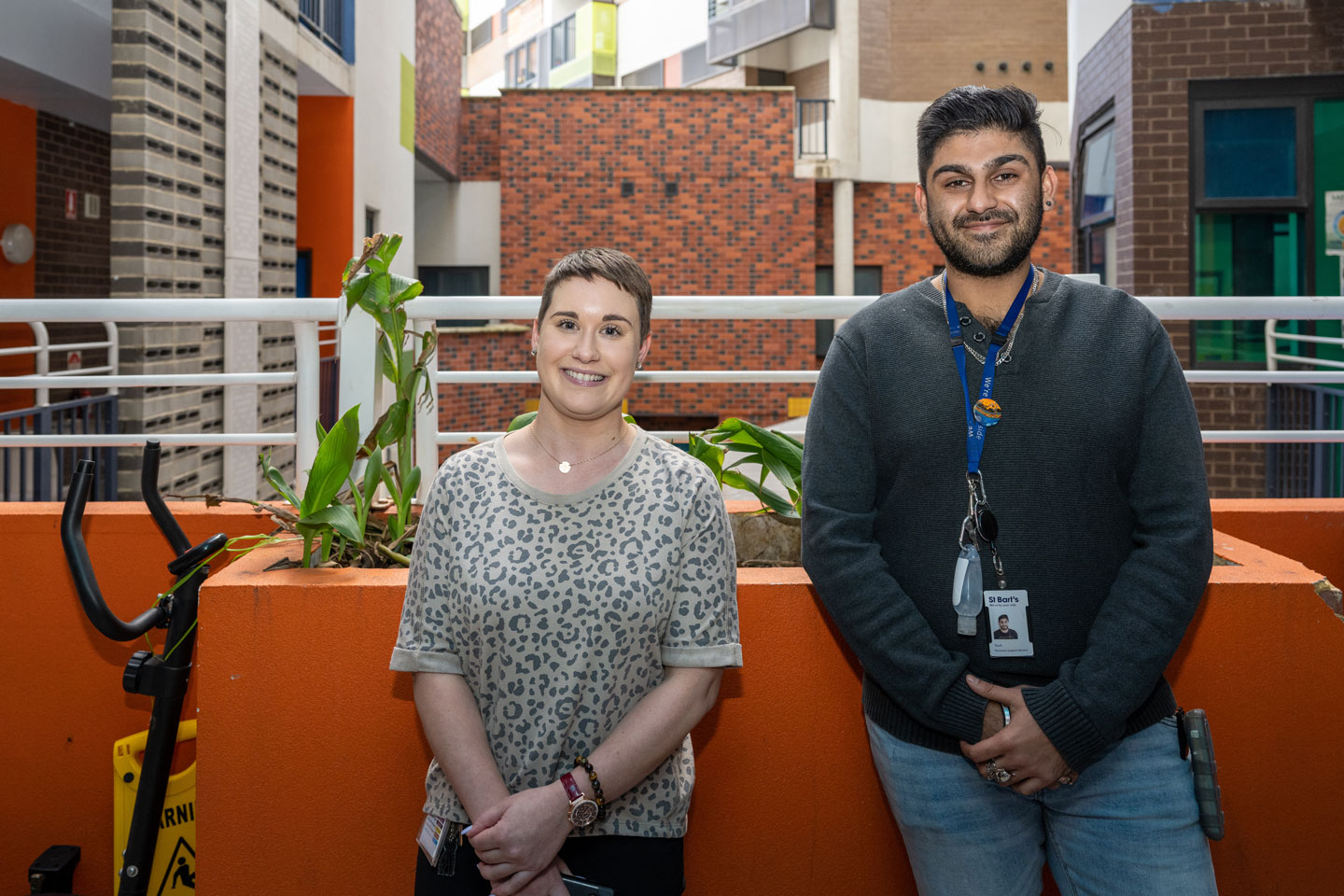

Many more women are joining the ranks of not-for-profit organisations, with an increasing number moving up to senior leadership roles.
It is mostly women who volunteer and work with clients at every level of these organisations. And now they are represented strongly at all levels, from grassroots to senior management.
In our continuing series of articles discussing female leadership in Western Australia’s NFPs, we meet more of the state’s inspiring leaders and find out what makes them tick (and what ticks them off).
Compassionate and strong not mutually exclusive
Foodbank WA chief executive Kate O’ Hara counts herself to be one fortunate leader.
“We’re very lucky at Foodbank WA because there’s no shortage of female leaders,” Ms O’Hara said.
“Our leadership team is led by five talented women who together with four knowledgeable and professional men, steer the organisation by leading by example, sharing their experiences to support others on their own career journeys.”

Foodbank WA marketing and communications manager Moira Aynsley has had a career in marketing spanning 20 years and is passionate about sharing her knowledge with those in her team.
Outside work Ms Aynsley also nurtures others.
Recently she took part in a mentor program for six months through the Future Female Leaders Program, helping Year 11 girls start a social enterprise that addresses one of the UN Sustainability Development Goals.
Throughout her career, across a range of various industries, Ms Aynsley has been passionate about helping organisations communicate their purpose, tell their story and promote their brand.
She is driven by roles and organisations that make an impact and describes herself as a storyteller who helps to enhance communities by telling the stories of the amazing impact charities make.
Her passion and talent are in increasing the recognition of great causes that help improve people’s lives.
For inspiration, Ms Aynsley believes Jacinda Ardern, New Zealand’s departing prime minister, is an inspiring leader.
An Ardern quote that resonates with her: “One of the criticisms I’ve faced over the years is that I’m not aggressive enough, or assertive enough, or maybe somehow, because I’m empathetic, it means I’m weak.
“I totally rebel against that. I refuse to believe that you cannot be both compassionate and strong.”
Ms Aynsley believes this quote speaks volumes of her own leadership style.
It is our compassion that makes us strong, according to Ms Aynsley.
Compassion and empathy lead us to make ethical decisions that reflect what is best for the organisation, staff and society.
Listening and learning

RSPCA WA inspector manager Kylie Green has been with the organisation for 13 years and manages a team of 15, including 13 inspectors who are charged with enforcing WA’s animal legislation (the Animal Welfare Act 2002).
“Before landing my dream job at RSPCA WA as an inspector, I worked as a local government ranger and as a security guard,” Ms Green said.
“Both have traditionally been male-dominated industries and I felt a lot of pressure to prove myself.
“I was the first female hired at one particular security company and I remember my boss saying to me, ‘this is on you. If you can’t make this work, I will never hire a female again’.”
It was a challenge which Ms Green took up with success and, despite admitting she did not join RSPCA WA with ‘leadership aspirations’, she had another quality in spades.
“I was driven by passion and a desire to improve processes and create efficiencies in an under-resourced team helped me grow into a confident and strong manager,” she said.
“As a woman leading a predominantly female team, I’m passionate about showing society what we can do.”
More than 92 per cent of RSPCA WA’s workforce identify as women and, in difficult situations, Ms Green admits she relies on communication skills rather than muscle to enforce the organisation’s legal rights.
“I may not have had the muscle, but I had a voice, and I quickly learned that I could talk a difficult person around and move them on without things becoming physical,” Ms Green said.
“Taking the time to understand and listen to people in a confrontational situation can make all the difference.
“Thankfully, times have changed, but this is a lesson I’ve taken into subsequent roles and try to instil in my team.”
Changing mindsets can be a challenge
For St Bart's Future Homes manager Sara Zanella, her career has been supported and advanced in the NFP sector.
At 30, however, Ms Zanella said she had found her age posed a particular set of challenges in the workplace.
“While I’ve had to supervise older staff members who undermined my capabilities and position in the past, I have found each NFP that I’ve worked for to be supportive of me and my career goals, particularly with the provision of professional development opportunities and experiences,” Ms Zanella said.
She said balancing work and life was often like walking a tightrope, but it was important, and overworking was not worth your health.
As manager of St Bart’s Future Homes service, Ms Zanella oversees the operation of the 24/7 onsite supported short-term transitional accommodation service for single men experiencing, or at risk of, homelessness.
The trauma-informed and recovery focused service can support up to 45 men.
As for Ms Zanella’s advice for women looking to work in the sector, she said: “Believe in yourself and your worth and know that it’s ok to take time to reflect and not feel an immediate response is required.”













